This week, how to hack online dating, the way to maximise your chances on that crucial first date, what makes couples compatible, and the giveaway signs of fertility in the female voice. Plus, in the news, how late-night texting and Facebook-checking is affecting the sleep of young people, the Dutch chimps that now speak Scottish, and why chemistry teachers have a lesson to learn about one of the world's most popular classroom experiments...
In this episode
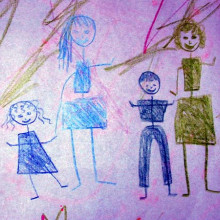
01:20 - The 'three parent baby' debate
The 'three parent baby' debate
with Robert Winston, Imperial College London
The UK's House of Commons voted by 382 to 128 - a majority of 254 - to allow mitochondrial donation through a controversial amendment to the 2008 Human Fertilisation and Embryology Act (HFEA). 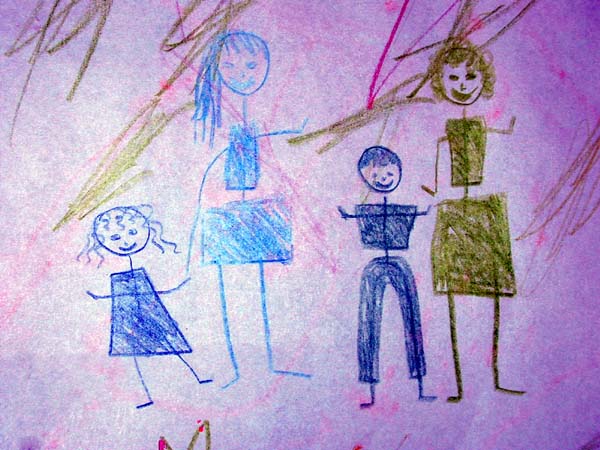 The regulations will now have to be approved in the House of Lords, where they are likely to be passed.
The regulations will now have to be approved in the House of Lords, where they are likely to be passed.
Kat Arney spoke with Fertility expert Robert Winston...
Robert - Actually, we're not the first country to permit mitochondrial transfer. It's already been done in the United States 20 years ago and we haven't permitted it in the UK yet. We have two houses of parliament and it hasn't gone through the House of Lords. Hopefully, it will and then there'll be a possibility of getting a license. But it's not permitted in the UK at the moment.
Kat - So, if we can unpick a bit about the science of this, people have referred to this as mitochondria. What are a mitochondria and what's gone wrong with them?
Robert - Mitochondria are tiny dots of material in most cells in the body and they are responsible for providing the energy which drives a cell. And so, they are involved with various chemical reactions, which include the Krebs Cycle, which in fact generates the way that we make energy. They contain about 16,000 base pairs of DNA. So, there's a tiny amount of DNA in those cells.
Kat - Because we have 3 billion, that's the rest of our genome.
Robert - We have 3 billion, so that's about 0.001% of your DNA is actually in your mitochondria. These mitochondria in nowhere as far as we know have anything to do with your personality or being how you are. The so-called phenotype, as we see it normally, when we look somebody or when we talk to somebody, your strength, your beauty, your intelligence, your memory and so on.
Kat - It's just the energy factories.
Robert - Just the energy factory.
Kat - A lot of bit has been said about women who have children with this mitochondrial disease, because it's only the women's egg cells that have these mitochondria that then go to the next generation.
Robert - Well actually, that's probably untrue too because it's probable that a sperm have mitochondria, but nobody ever mentions that. But they don't seem to get into the egg actually. There are a whole other things about mitochondrial disease which are being extraordinarily discussed over the last few weeks.
First of all, I think that the whole issue of mitochondrial transfer is much more trivial than has been generally stated. I think that it's probably been rather unwise to attract the amount of publicity it has done because it's bound to bring out all the people who are hostile to in vitro fertilisation. But basically, there are a few people- actually, it's really quite rare - who have mitochondrial disease and they suffer from gradual decreasing of brain activity, loss of muscle power, loss of kidney and heart function. Many of these people die as children often before the age of 4. Sometimes they grow into adults and they have a form of muscular dystrophy or blindness or other very serious disorders. These diseases are horrible and there's no way of caring them. Once you've got them, there's no chance.
So, what has been proposed is that mitochondrial transfer should be done by taking out the nucleus and putting it into the cell with fresh mitochondria, alternatively transfusing mitochondria into the cell where the nucleus already is having got rid of the old mitochondria. And this is what the license is being applied for my colleagues in Newcastle.
Kat - So, this is I guess where the idea of the 3 people involved. I know a lot of people say these aren't 3 parent embryos that there's from one woman's egg cell, you're taking these mitochondria, the energy factories and then you're mixing it with the DNA from the two biological parents.
Robert - But you are more of a 3-people person when you've had a blood transfusion because you've had hundreds of cells, complete cells from another individual. Their only difference is that the mitochondria persist that they go on dividing and they live indefinitely and they pass on to the next generation. That's the difference.
So, you potentially have a permanent cure. The probability is that - the difficulty of course is that we don't know whether this is going to happen because there's no animal model. So at the moment, we're still hoping to do this. But there are a number of desperate mothers and fathers out there who would not want to see another child die, who feel very strongly that they should be given the autonomy to do this. And so, consequently, I think that it will be likely, it will go through the House of Lords and I hope it does go through the Human Fertilisation Embryology Authority as well.
There is a risk of producing an abnormal baby but I think it's just like when we did in vitro fertilisation the first time, we didn't know what was going to turn out. And certainly, when we biopsied an embryo for the first time for pre-implantation diagnosis, we didn't know then whether the baby is going to be normal. We did all sorts of experiments but ultimately, the human, of course, is unique and very special.
Kat - And I'm sure the parents who've had wonderfully happy healthy children as a result of these techniques would say, "Yes, this is a really great thing to be doing."
Robert - Yes. I mean, I think that's right. I mean, I know that the women who first went into pre-implantation diagnosis, I think were immensely brave. I remember having long discussions with them because nobody has used IVF for genetic disease before. As I say, I think two things have happened, which are perhaps unwise. One is, I think that the amount of importance of this has been rather exaggerated and I think that's in fact therefore, focused too much attention on it. Secondly, I think it was very unwise to suggest that if we didn't do this first, we would leave our primacy in this area. In my view, to treat a child because you want to be first seems to me a very bad reason for doing it.
Kat - Really very briefly, what's the timeline going forward for this because this has now gone through the Commons. But this isn't suddenly, "Off we go! We're going to do this now."
Robert - No. I think you'd have lots of people in Newcastle. But I think if the HFEA give a license, I imagine they must have some patients lined up. I know that patients have been in the media, so I imagine that they will try and do this this year or next.
The vote in the House of Lords is actually on the 23rd of this month and I'm actually away. But I'm just wondering whether I should come back and speak in the debate, so I might do that.
Kat - I hope you will.
Robert - I haven't decided yet but I think probably, they'll expect me to submit breaking a very short holiday.

07:44 - Should screens be banned in the bedroom?
Should screens be banned in the bedroom?
with Mari Hysing, Uni Research Health, Bergen
Should computers and mobile phones be banned from the bedroom? New research from Norway suggests that electronic devices with bright screens could be disrupting the sleep patterns of teenagers - 90% of whom admitted using a screen in the 60 mins before going to bed. Mari Hysing based at Uni Research Health, in Bergen, says the resulting sleep deficiency is profound, as she explains to Chris Smith...
Mari - We did a study on this last year where we found that for every weekday that adolescents get 2 hours less sleep than what they should be getting. So, that's a 2-hour sleep deficit every single day. Again, we know that having not sleep sufficiently is related to poor physical and mental healthy as well as absenteeism and lower school performance.
Chris - Is there evidence Mari, that this problem is an acute one? It's just happened or it's getting worse or has it always been like this?
Mari - Well yes and no. I think that there have always been people that are not been sleeping enough, but there are evidence that it might be getting worse for teenagers. That they're sleeping less than what they did many years ago.
Chris - And your thought would be, it's the distraction of having electronic devices because the data I've seen, it's something like 97% of American adolescents have at least one electronic device with a screen on it in their bedroom.
Mari - Yes and this was the same we found in the Norwegians that 90% of them did spend some time or some electronic device the last hour before they went to sleep in their bedrooms. So, we're getting to the American level.
Chris - Who did you look at in your study and how did you actually do this work?
Mari - Well, this is part of a large epidemiological study, 10,000 adolescents in a county in Norway. So, we invited all the adolescents in the county and they were able to answer these questions on the internet during their school days and for those who were not in school, they answered at home.
Chris - I presume they didn't answer at night just before going to bed.
Mari - We don't lmpw actually, so we might be part of the problem here.
Chris - Indeed and this was to enable you to probe how their screen use or exposure to electronic devices is linked to their sleep patterns. So, you got data on how they were sleeping and how much computing they were doing.
Mari - Yeah. So, this is part of a big study and this was one of the aspects that we were able to cover more detailed.
Chris - When you broke that data down, what trends were emerging?
Mari - So, what we did find then was that the hours of screen time during the day as well as that last hour before they went to sleep in their bedroom were related to sleep duration and how long it took for them to fall asleep at night.
Chris - And how do you account for this effect? Is it just that by playing around on an electronic device, a person by definition is not going to sleep or do you think that it's causal? Do you think that the use of the device makes a person more prone to poor sleep afterwards?
Mari - Yes. We do think that there are multiple pathways and some of them direct. That is, many of these screens have quite bright light and some of the blue lights might impact your hormone production or the sleep hormones. So, it actually sets your clock off a little bit. In the same sense that being outside in the morning helps your sleep, having very bright light in evening will probably delay your sleep pattern and making it harder for you to fall asleep at night. But as you say, it's not just the biological effect here. It's very probable that using screens either way is brain activating, and socially activating. So, getting activated and enthusiastic or into what you do then you're not relaxing and that's what you need to do when you go to sleep.
Chris - What do you think then the implication of this is? Do you think that actually, there's a reason to be concerned and we need to consider some kind of action?
Mari - I think that all teenagers or most of them are going to use their screens and that's okay. I think it's more, finding that balance between how much time you spend on your screens and doing other activities - school, friends and physical activity. Maybe at night, we can be more definite and say that it's good to prioritise your sleep and by logging off at night and keeping the electronics out of your bedroom, and also, try to log off the last hour before sleep, you'd be helping your health and maybe also school performance.
Chris - There must be some implications for adults in this too surely because if you look at the data Facebook have got on people's use of their platform, one of the last things, many of their adult users do before they go to bed is quite clearly, checking their Facebook page and see what their friends are up to. So, are we all actually probably suffering in the same way these teenagers are?
Mari - Yes, I think we are and it's very possible that the same mechanisms works for adult. It might be that for adolescents, it's a very sensitive time. During your teenage years, you need your school performance and a lot of things happen that have major consequences for the rest of your life. so, I think it's important as parents that we try to help them to improve their sleep. But maybe this is a good opportunity to look at our own use of the screens and maybe improve our own sleep as well.

13:29 - Do chimps have regional accents?
Do chimps have regional accents?
with Dr Katie Slocombe, York University
Pomme; ap-vel apple; mela- human language is gloriously diverse but is this the  same for other species, like chimpanzees? Is there a universal chimpanzee language with dialects and accents? Or would a Scottish chimp and Dutch chimp just cross wires? A paper published in Current Biology has been answering just this question. Graihagh Jackson reports...
same for other species, like chimpanzees? Is there a universal chimpanzee language with dialects and accents? Or would a Scottish chimp and Dutch chimp just cross wires? A paper published in Current Biology has been answering just this question. Graihagh Jackson reports...
...chimp called Frek saying apples.
But does that sound mean 'apples' everywhere in the chimp kingdom? If a Dutch chimp went to Scotland and met a Scottish chimp - no, this isn't some terrible joke - and wanted to talk about apples or apfels in Dutch, would they understand each other? Would they adapt to become more Scottish in their accent, learn English for apples or simply shout apfel louder and louder, and slower and slower, like us humans do? Well, this is exactly what Katie Slocombe from the University of York has been trying to find out. Nine Dutch chimps were put into an enclosure with 9 Scottish chimps Edinburgh Zoo.
Graihagh - Chimps make certain calls for certain foods, just like humans have words for things. This is a Dutch chimp called Frek saying apples. (sound) But does (sound) mean 'apples' everywhere in the chimp kingdom? If a Dutch chimp went to Scotland and met a Scottish chimp - no, this isn't some terrible joke - and wanted to talk about apples or apfels in Dutch, would they understand each other? Would they adapt to become more Scottish in their accent, learn English for apples or simply shout apfel louder and louder, and slower and slower, like us humans do? Well, this is exactly what Katie Slocombe from the University of York has been trying to find out. Nine Dutch chimps were put into an enclosure with 9 Scottish chimps Edinburgh Zoo.
Katie - Yes, so we were actually just very fortunate to be in the right place at the right time. this was a big challenge for Edinburgh Zoo. So, they brought these new Dutch chimps over to really enlarge the Edinburgh group and have an active breeding group. And so, we were able to just get in and before they integrated them into this big group - record their calls and their preferences and then track them over time as they live together and started to get to know each other.
Graihagh - To begin with, they had very different calls and very different food preferences. The Dutch chimp Frek and his companions really liked apples and had quite high pitched calls as you heard before. The Scottish chimps however were not so keen on the old apples. Meet Lucy, the Scottish chimp. It's quite hard to hear, but essentially, it's a low grunt and nothing like the high-pitched shrieks that Frek makes when he see apples.
Katie - We focused on the apple calls because that's where we found a really interesting difference between the two groups. So, the Edinburgh chimps, they didn't particularly like the apples and they gave these low pitched, quite gruff sounding grunts...'UH UH UH'- like that. and in contrast, the Dutch chimps who really like the apples gave much higher pitch, more tonal grunts, more ...'ah ah ah!'. And so, at the beginning in 2010, we had a really clear difference in the calls that these two groups of chimps were actually giving for the same type of food.
Graihagh - And so, you put the Dutch chimps in with these Scottish chimps to see how their calls and tones were changed.
Katie - Yes. So, just 1 year after integration, so after a whole year of living together, disappointingly, we found nothing had changed. But we then looked at the social data and actually found that although they were living together in one enclosure, they didn't really like each other very much. So, they weren't spending much time with members of the opposite group. So, when we came back in 2013 - so, they'd had 3 years now to live together and get to know each other - the social data then showed that they actually started to like each other. So, they'd form some really strong friendships kind of across those original groups. It was at that point that then we found that their calls have actually converged. We found that the Dutch chimps had changed their calls to sound much more like the Edinburgh chimp's calls.
Graihagh - This is the old Frek...(sound). Now meet the new Frek...(sound). And compare it with Lucy, the Scottish chimp again...(sound). It's practically the same. Frek and his Dutch friends became more like the Scots, but why not the other way around? Katie theorises that this is perhaps because the Scottish chimps were more dominant or perhaps there was more pressure on the Dutch chimps to fit in because they were immigrants. But the Dutch didn't completely pander to the Scots.
Katie - Although the Dutch chimps were now giving a much lower pitched call, they actually still really loved apples.
Graihagh - And I suppose this is all quite surprising because my understanding is that they thought the key difference between chimps and human language is that chimps couldn't adapt their calls like humans can - i.e. I might sound more northern when I'm talking to a northern person. So, to find out that chimps can is quite surprising.
Katie - Yes, indeed. It's really exciting. Previously, we thought that all other primate calls, the structure of those calls is really determined by their arousal or their emotional state. And they don't really have much control over the structure of their calls. Humans seem to be really special in that way. But what this study shows is that actually, although they're not coming up with new calls to label things in their environment, but they are able to change the acoustic structure. Because we found that change happened independent of their preference for apples, it does seem to be that the first evidence that they can control the structure of their calls independent from the emotion or the arousal that they're actually feeling, so that's really exciting.
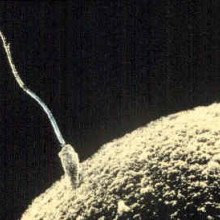
19:01 - Remote controlled sperm
Remote controlled sperm
with Dr. Dagmar Wachten, Center of Advanced European Studies and Research, Germany
How sperm gear themselves up to fertilise an egg is very difficult to study. For a  start, standardising the conditions and then being able to reproducibly study each sperm cell without unintentionally altering its biochemistry is extremely tricky.
start, standardising the conditions and then being able to reproducibly study each sperm cell without unintentionally altering its biochemistry is extremely tricky.
Now a German team have come up with a way to make remote controlled sperm that you can turn on with a flash of light. Joining Chris Smith from the Center of Advanced European Studies and Research, Germany, is Dr. Dagmar Wachten, who led the study...
Dagmar - Hello.
Chris - Why on Earth would you want, first of all to make remote controlled sperm? What was your motivation?
Dagmar - That's a good question. So, what we tried was basically to have a tool that we can use to control sperm function and that is not disturbed by any other means. Here light is the easiest way to do that because you can quickly turn it on and off.
Chris - If you were to use drugs or other chemicals on the sperm to control their activity, I suppose there might be side effects.
Dagmar - Yes, that's true because sperm are not really easy to handle and they're really prone to odd effects in particular, when you use pharmacological tools. And that's why we want to step away from that and then use light.
Chris - How does one go about making sperm sensitive to light so you can turn them on and off in this way?
Dagmar - So, the first thing you need to do, we need to engineer them and you need to genetically do that by introducing a molecule that is light-sensitive. Usually, sperm don't contain light-sensitive molecules. So, what we did, we use the light-sensitive molecule that allowed us to control sperm motility. Just by shining light on them, we could speed up the sperm so they swim faster.
Chris - How do you get the light sensitive molecule into the sperm in the first place?
Dagmar - So, we would need to do here a transgenic approach. Meaning, we would need to engineer a fertilised oocyte. So, we introduce a piece of DNA into this oocyte and from this create a new mouse and this mouse then contains this light-sensitive molecule just in its sperm.
Chris - I see. So, by putting the gene for the light-sensitive molecule into the mouse in the first place then its sperm are naturally produced with this particular molecule in them. And they're only activated essentially, when you shine the light on them then.
Dagmar - Yeah. So, what we do is we prep those sperm, those genetically engineered sperm in the dark and in the dark they're completely behaving normally like normal sperm would do. But only when we shine light on them, these sperm swim faster because their tails are beating faster.
Chris - What is this showing you? What can you do with these sperm now that we couldn't do before?
Dagmar - So before, it was really tricky to study particular signalling pathways in sperm and analyse which molecules control which sperm function. Now, having this tool, we can just really precisely switch on a particular sperm function namely, sperm motility and understand how this is regulated in a really precise manner.
Chris - And I suppose that this may have a long term benefit for people who potentially suffer from say, subfertility or infertility because the more we understand about how sperm work, the better place we are to try to develop better treatments.
Dagmar - Of course! First, we want to understand what is going wrong in those patients because so far, our understanding is not sufficient to really say what is going wrong in a particular patient. So, that's the first thing we need to understand.
Chris - Dagmar, thank you very much. That's Dagmar Wachten, describing the world's first remote controlled sperm, just activated by light, a study that she published just recently in the journal eLife.
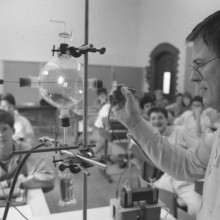
22:35 - Re-writing the sodium water reaction
Re-writing the sodium water reaction
with Mark Peplow, Science writer
Scientists sometimes say of their discoveries that we'll need to "re-write the 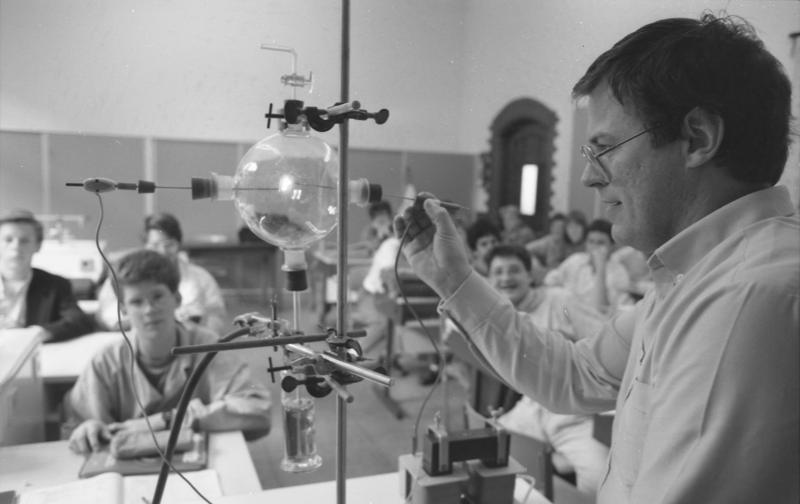 textbooks" on the subject. But now researchers really have taken a red pen to the explanation for one of the most famous school chemistry experiments - the one when a lump of sodium metal burns when dropped into water, as science writer Mark Peplow explains to Chris Smith...
textbooks" on the subject. But now researchers really have taken a red pen to the explanation for one of the most famous school chemistry experiments - the one when a lump of sodium metal burns when dropped into water, as science writer Mark Peplow explains to Chris Smith...
Mark - It's a favourite school chemistry demonstration. You drop a chunk of sodium metal in a bowl of water and watch it scitter around on the surface, fizzing and popping as it reacts with water to make hydrogen gas. Potassium, it's even better. You throw that in and you can get quite a hefty explosion. But why does it explode?
Chris - The dogma that gets strutted out in the classroom is that the metal is so hot that it ignites the hydrogen that's being made and it burns.
Mark - That's exactly what we were told at school and what teachers continue to tell their pupils. But a team of chemists in Prague have now used high speed cameras to prove that something else is going on. Running at 10,000 frames per second, they videoed an alloy of sodium and potassium which is a liquid, dropping into water. After just 0.4 milliseconds, they saw little spikes of metal shooting out from the droplets of alloy which is far too fast to be caused by heating or hydrogen explosion. Around the same time, the water briefly turns a very distinctive dark blue colour.
Chris - Ooh
Mark - I know. It's very mysterious. So, to work out what was going on, the chemists did some computer simulations of the reaction. They calculated that each atom at the surface lost an electron within just a few Pico seconds of hitting the water. That's a trillionth of a second. That's roughly the time it takes for light to travel a millimetre. Now, when lots of electrons are dissolved in water, they create a blue colour, exactly what they saw in the video.
Chris - What's causing the little spikes of metal then?
Mark - Well, this is the cool bit. Once those electrons have left the metal droplet, that leaves a lot of positively charged metal atoms behind. Now, those repel each other like crazy, so strongly that they blast apart, forming those spikes. Now, this actually seems to resolve a question that some people have raised about the old explanation of this reaction. You'd expect all that hydrogen gas and steam roiling around the surface of the metal. You'd think that would prevent more water from reaching the fresh metal underneath and that would actually slow the reaction down. But the point is, the metal spikes can actually burst through that layer so the metal keeps reacting with the water.
Chris - Goodness! And what's the reason for the hydrogen then igniting? Is that genuinely just the heat from the metal of the reaction or is there something else triggering that?
Mark - No, that's right. The heat of the reaction is ultimately going to ignite the hydrogen. But that's happening much later than this first explosive process.
Chris - Now, the killer question here must be, what's the practical purpose of having done this study? Is it purely just academic interest or does this inform some other areas of chemistry that we haven't previously ventured into?
Mark - The researchers who did this in Prague say that their main motivation for doing this was just to try and understand this long standing puzzle of exactly what was going on in the reaction. And their hope really is that, we often say that this research will rewrite the textbooks, but in this case, they really hope that it will because they want to make sure that teachers are giving the true nuance picture of what's actually going on in this reaction to their students.
Chris - And the gold star for science writer, Mark Peplow for teaching it to us properly.

26:48 - Hacking dating websites looking for love
Hacking dating websites looking for love
with Mateja Jamnik, Cambridge University, Chris Mckinlay and Amy Webb
Despite a long history of being blamed for coming between couples, more recently  computers and online dating sites are proving to be the leading way to meet people, especially if you know how to get the best out of them. Hannah Critchlow explores further...
computers and online dating sites are proving to be the leading way to meet people, especially if you know how to get the best out of them. Hannah Critchlow explores further...
Hannah - Online dating. Have you tried it? if so, you're not alone. According to the data crunching website the Statistic Brain, of the 50 million Americans currently single, a whopping 75% of these have gone online looking for love. It's a big buck business with 1.25 billion-dollar yearly turnover. Why? Well, it meets with some success. 17% of American marriages in the last year report having originated from online love. Back over this side of the pond, myself and friends also have given it a go. Have we met with success?...largely, no.
Well first up, I wanted to find out exactly how these online dating algorithms are meant to work...
Matea - My name is Matea Yamnik and I'm a senior lecturer at the computer lab at the University of Cambridge. So, online dating algorithms gather information about individuals, about what those individuals like and don't like, and what they would expect from potential candidate matches. They assign weights to these characteristics and then they put all of that information into big equation and fit in those numbers into a big formula and come out with a percentage which is a potential match.
Hannah - Okay, so how to maximise the chances of online love. I spoke with data analysts and mathematicians who've used their tricks of the trade to do just that. Amy Webb works with data to help predict business's future and she describes how she tackled online dating.
Amy - At the end of one particularly horrible date, I went home and I was really upset and I called my sister. She had mentioned to me the beginning of Mary Poppins, the two kids going through nannies over and over again, and they can't find one. And so, they make a list of everything they could possibly want a nanny. And then miraculously, Mary Poppins shows up. And so, my sister said to me, "Why don't you make a list of every single possible thing you could want and then maybe Mr. Magical wonderful person will appear for you." So, I sat down and I started making this list and ultimately, I wound up a 72-different data points. I needed to figure out a way to prioritise that so I assigned weighted values to each one. And so, I had a top tier and a secondary tier and created a formula. But basically, what I was trying to do was to quantify, these are the things that are the most important and unless somebody meets a minimum number of points then it's just going to be wasting my time. so, I'd come up with those crazy formula and I sort of figured out what it was that I was looking for. It took about 3 weeks but at long last, I found a profile that met the minimum number of points and we started chatting and I didn't go out with him right away. So, we decided we should take a couple of weeks and I wanted to really make sure I was scoring the criteria correctly. When we met in person, that wound up being the last first date I ever went on and that's the guy that I married.
Hannah - Next, I spoke with Chris McKinlay. He joined a dating site whilst finishing his math PhD. These two projects kind of merged. Dissatisfied with how the dating site worked, Chris wrote code to extract data from over 20,000 female profiles and he applied algorithms to the data to figure out what was popular and what would match well with the ladies that he likes. And from that data, Chris was able to create his very own super profile.
Chris - So, it become the most popular male profile in Los Angeles. Before I did this, I maybe had 50 or so people that I matched at 90% or higher and after that, the number just in Los Angeles is about 30,000. I started going out on lots of dates and I kept them pretty short - maybe 20 and 25-minute coffee dates because these were dates with people who'd answered several hundred multiple choice questions in a statistically significantly similar fashion. I find the other similarities would creep out. Like at one point, 8 out of 9 people in a row were the exact same specific kind of funny coffee drink, ((inaudible))(32:12). People would ask the same questions in the same order, kind of have the same colour like iPhone case, similar affectations. There is definitely a groundhog day feel to the whole thing. It got a little bit alienating for me for awhile. I would go on these dates and a lot of them would be really similar but for them, oftentimes, I'd be the highest match on the website that they'd ever seen. Sometimes after several years of being on the site, they were generally really interested in meeting and invested in like having a really good first date experience. I got very good at them because they were very similar to one another. Went to like lean in and show interest, went to like nod. There was very little at stake for me because I usually had 7 or 8 dates setup after.
Hannah - But it ended well, I believe.
Chris - Yeah, it ended really well. I met someone who was just like completely, blew me away and that happened on about the 90th date when I met my fiancée Kristine.
Hannah - What do you think are the chances are of you meeting your future wife, your fiancée, had you not done all of this reverse engineering?
Chris - This particular woman, zero. I think that for any person, there's probably a couple other people on the planet that they would be really, really happy with for the rest of their lives and I'm really lucky to have met one of them.
Hannah - Back to Matea Yamnik on how analysis of the matchmaking skills of online dating sites.
Matea - When people have done statistics about how successful they are, whether they lead to true love and long term relationship. The criticism is that often there are no more reliable than just randomly picking people. What they do provide is a mechanism of meeting people which nowadays, busy lives, it's becoming increasingly more difficult.
Kat - Matea Yamnik and before her, successful online daters Chris McKinlay and Amy Webb.

33:10 - Fertility giveaway in female voices
Fertility giveaway in female voices
with Dr Nathan Pipitone, Adam State University, Colorado
The way a woman sounds varies with her menstrual cycle and is an unconscious indicator of fertility, as Nathan Pipitone, from Adam State University, Colorado explains to Chris Smith...
Nate - A lot of our main attractions seem to come from the visual domain. So, we're looking at features of for example, characteristic features of males - we're looking at stature, we're looking at muscularity, we're looking at confidence, types of behaviours, and so on and so forth. But we're not all visual creatures. And so, we actually use all of our senses when it comes to in person mate assessments so not only the visual domain, but in the auditory domain, which is the focus of my work, and even the olfactory domain, how somebody smelled, and even surprisingly, the gustatory domain. A colleague of mine has shown that kissing behaviour conveyed a lot of our underlying biological information to one another.
Chris - We learned on the programme last week that a kiss also conveys something in the region of 80 million different microbes per 5-second intimate encounter.
Nate - Exactly. So, some of those microbes are conveying good informations, some of those microbes are conveying some bad informations. So, lots of biological transmission, if you will, in a kiss.
Chris - And all these gets integrated in your brain, forming an opinion of that person and whether or not, you like them. Tell me more about the sound side of things then.
Nate - Some of my work has shown that women that speak higher in pitch, and we've done this in a natural fertility population, they actually produce more children and grandchildren. And so, fundamental frequencies seems to be one of the most important vocal acoustics that allows us to assess good mates from bad mates.
Chris - Is that biologically plausible? Why should a woman who is more fecund, more fertile, have a higher pitch to her voice than one who's less likely to bear offspring? Is it just because someone who's less likely to bear offspring with a low pitch voice is because they look more masculine and therefore, less attractive so they get actually fewer partners?
Nate - In terms of females, we think it's due to how oestrogen not only suits the female voice, but also, is related to female fertility. And so, women speaking on a higher pitch voice, we think that this is an indicator of trait oestrogen levels. And so, not only is the oestrogen a very important component in reproduction, but it's also shaping the larynx and it's shaping how women are speaking as well. This is why we think there's this systematic correlation between pitch and fertility.
Chris - Over the course of a month, a woman's menstrual cycle means that her hormone levels do wax and wane, oestrogen foremost among them, peaking in the middle of the cycle around day 14 when you are - on average - most likely to conceive if you have sex then. So, does this mean that a woman's voice changes across the month then and perhaps the signal about when you're most fertile coincides without high oestrogen peak?
Nate - This is precisely what we think is going on. And so, when we look at how a woman produces speech across the menstrual cycle, we've been able to document a systematic change in the level of attractiveness attributed to women that are naturally cycling. If we record the voice from the same female at different points of the menstrual cycle and then playback those voices to independent raters that haven't seen them, their voices recorded at high fertility are rated as more attractive compared to voices recorded at low fertility. It's an overall subtle effect with the very systematic shift that we've been able to pick upon.
Chris - Can you give us some samples of what it sounds like in the - let's say, low fertile state versus the high fertile state?
Nate - So in this sample, you'll hear a voice recording of women counting from 1 to 5 and this is the low fertility recording.
Lady - 1, 2, 3, 4, 5...
In another recording, you'll hear the same woman counting from 1 to5. But the only difference is, that this was recorded at the time of high fertility.
Lady - 1, 2, 3, 4, 5...
Chris - Now, they do actually sound a bit different and there's no way that the woman just talks like that on one occasion and the other way on another occasion. This is a consistent finding that she sounds more high pitched on the more fertile situation.
Nate - What's interesting is between individual's pitch makes a difference. And so, as one woman speaks, we'll compare that recording in terms of attraction as to another woman speaking, pitch seems to make a difference. But within the same individual, one study has found that pitch does systematically change. But there's been several other findings that haven't been able to replicate that. And so, we can't just boil down what's attractiveness this across the menstrual cycle to voice pitch. There's a host of acoustics that are probably changing in systematic ways. What's interesting is that we don't need the acoustics to actually find the effect. The human brain almost instantaneously picks up on this slight attractiveness difference. So, we still have a lot of work to do in this area in terms of the approximate vocal acoustics actually affecting voice attractiveness.
Chris - And a group of people rated these voices according to their attractiveness without actually seeing the person speaking. So, they weren't being biased by what that individual looked like, purely by what they could hear?
Nate - Exactly. It's just by the sole sound of their voice. And so, our work has shown that just by speaking to other individuals, the sound of your voice conveys a host of biologically relevant information that correlates with attractiveness indices in the visual domain. And so, just by using the sound of somebody's voice, you can pick up a lot of information related to whether you're going to be attracted to that person.
Chris - Now, what about individuals who are using oral contraceptive pills, for example, which effectively fool your body into believing that it's permanently pregnant, the result being that you just don't ovulate and you don't have this big flux in hormones with a surge in the middle of the cycle. Do those individuals not show this behaviour then, one would predict that they wouldn't?
Nate - Precisely. And so, with all of our research, we always conduct a control group of women, we record their voices at different times of their menstrual cycle but then they are using hormonal contraceptive. And so, we look at voice attractiveness differences at "high fertility times" in these women compared to low fertility times and we haven't been able to find anything with women using hormonal contraceptives. So, using hormonal birth controls seems to truncate this attractiveness response across the menstrual cycle.
Chris - Does that in turn then mean that there's the possibility that if someone mates and dates while they're taking the oral contraceptive pill that subsequently, where they to stop the pill, they could be in for a disappointment?
Nate - Exactly. That's a really interesting implication. And so, we'll work as soon, looking at women that use hormonal contraceptives, they seem to prefer less masculine types of characteristics with men. So, they prefer more feminine male traits and these are in the behavioural domain and in the physical domain. So, not as much muscle mass, not as a robe or impulsive. These are characteristics that naturally-cycling females tend to like more than women using hormonal contraceptives. So, this is interesting for monogamous pair bonds. If women are using a hormonal birth control and they found a mate and then they want to start a family some day and they decide to go off of the pill or whatever they're using, they might find that their mate isn't what they thought they were. So, this is really interesting to see how hormonal birth control is affecting relationships throughout the world.

40:34 - Sniffing out sexual compatibility
Sniffing out sexual compatibility
with Lord Robert Winston, Imperial College London
What information is emanating from your armpits and what does it reveal to a potential partner about you? With Kat Arney to discuss couple-compatibility is Robert Winston,  Emeritus Professor of Fertility Studies at Imperial College London...
Emeritus Professor of Fertility Studies at Imperial College London...
Kat - Now, Nate mentioned some signals to help boost your chances on that crucial first date, but what about other signs? Could you be emitting information maybe from your armpits without realising it? what would a sniff test reveal about you? So with us, to discuss some of these more intimate issues of couple compatibility for producing babies is Robert Winston again, emeritus professor of fertility studies at Imperial College London. Hi, Robert.
Robert - Hi.
Kat - So, tell me a little bit about the smell of love. What do we know about what attracts people in terms of their smell?
Robert - Well interestingly, pheromones as may like, you smell them. I mean, they may be imperceptible but it's being clearly shown by a number of people, Craig Roberts for example. Also incidentally at New Castle University for some strange reason. And Craig has shown in his rather nice work that - I mean, one experiment we did together many years ago was to take t-shirts which should be worn by young women, undergraduates who I haven't met sadly who have slept in these t-shirts for two nights at their menstrual cycle. They were not on contraception, they were not eating curry, not smoking, not using spicy food.
Kat - Didn't have bad BO.
Robert - And then I had to sniff them in a blind test. And I used the word advisedly and rank them in order. Actually, what was interesting was, completely blind because I had been tissue typed and so had they, it turned out that the ones whose tissue type was most compatible with mine, those were the pheromones I least liked while the people who hada very different tissue type I scored quite highly in a completely blind test. So, it's quite a nice example I think of how pheromones may work.
Kat - Obviously, smelling someone's horrible sweaty sporty BO is a bit of a turnoff and there's a huge industry in people spraying on perfumes and all kinds of things to cover up or change their smell. Is that interfering? What would be the most attractive smell to find or the best way of finding the right smelling partner for you?
Robert - Well, I think we should ask you that but I don't know. I mean, I think we have to be very careful about drawing these conclusions. But of course, don't forget that quite a lot of people find the smell of people not unattractive particularly in times when they're making love. I think that it's not very simple. It may well be that in public places, we find those sorts of smells quite disgusting. But I think what I think is interesting about pheromones is that you don't need to actually be able to smell with your olfactory system in the usual sort of way because the olfactory system is extraordinarily sensitive. You can detect one part in several hundred million of a molecule. so, it is extraordinary in how we do that.
Kat - In terms of finding this kind of compatibility if you're thinking about making babies with someone, is it a way of making sure that you're going to make compatible babies or even be able to make babies at all?
Robert - Well, that's a theory. The theory of course is that if you are genetically just similar, you're less likely to have a mutation which is recessive which is the same allele of both partners. That's the theory and certainly, we do know that people who married to similar people are less likely to have deformed or genetically damaged children. so, there's some evidence for that.
Kat - In terms of fertility and trying to make babies with someone hoping to be compatible with them, are there any signs that maybe people could look for to see if someone is fertile that they might want to have babies with? He has a deep voice. For men, we heard about changes in women, big hips. What are some of the estimates?
Robert - I don't know, but I would say that the best way to find out whether somebody is fertile is to have sex and have sex often. And not necessarily the mid cycle by the way because of course, although it's been staged on this programme just how ovulation occurs on the 14th day of cycle, but throughout the cycle, but doesn't always and sometimes people can even ovulate during menstruation. It's not quite as straightforward as we sometimes kind of put out.
Kat - Yeah, I mean the inside of a lady's body isn't made of clockwork.
Robert - Nor a man's either.
Kat - So, in terms of, if you are trying to make beautiful babies if people are in the mood this Valentine's Day, are there any things that they could do maybe that they could eat or ways that they could try and boost their chances?
Robert - That's what it's about. It's about Valentine's Day.
Kat - Well, maybe you just feel like love all the time, but...what could boost people's chances of conceiving if they want a Valentine's baby?
Robert - Have a drink.
Kat - Not too much though.
Robert - Well, you know, that's another myth because in fact, we had all these dreadful headlines stuff going about alcohol now on pregnancy. But actually, the evidence that alcohol in moderation is in any way dangerous to pregnant women is very, very dubious.
Kat - I'm talking more about, if you have too many, just pass out before you can get to it.
Robert - I mean, I think we all want to have consensual sex. No, I don't. I mean, that's a different issue.
Kat - But if you're going to a restaurant, is there...
Robert - Yes. But I think going to a restaurant, having a pleasurable occasion is all part of loosening those inhibitions. I mean, what is quite interesting and we did some research many years ago where in a large cohort of infertile women who are undergoing various treatments for infertility, not only IVF. What we found was that people who had regular orgasm were actually less likely to be infertile. Moreover, if they were infertile, they will usually have a specific cause for their infertility. People with unexplained infertility often were more likely to unorgasmic and that would suggest that orgasm and contraction of the genital tract may have something to do with fertility. So again, pleasure with intercourse.
Kat - So, having lots of fun if you're out there having a fun Valentine's Day. Thank you very much. That's Robert Winston.

46:52 - Maths to maintain a relationship
Maths to maintain a relationship
with Dr Hannah Fry, University College London
The path of true love never runs smooth, or so the saying goes. But is there a ![Old couple in love © By Ian MacKenzie (Flickr: Old Couple) [CC-BY-2.0 (http://creativecommons.org/licenses/by/2.0)], via Wikimedia Commons Old Couple](/sites/default/files/media/Old_couple_in_love.jpg) mathematical formula for a long and happy relationship? University College London's Hannah Fry has just published a book on the subject so she clearly believes that there is, as she explains to Chris Smith...
mathematical formula for a long and happy relationship? University College London's Hannah Fry has just published a book on the subject so she clearly believes that there is, as she explains to Chris Smith...
Chris - We're talking about the science of love in the anticipation of Valentine's Day this week. So, when it comes to maths Hannah, in the words of Tina Turner, "What's love got to do with it?" Do you like Tina Turner by the way?
Hannah - I'm an enormous fan, yes especially now. So, maths can't really help us describe the emotional side of love I suppose. It's very difficult to formulate the thrill of romance and do a set of equations. But that doesn't mean that it doesn't have an involvement because the way that we date each other, the way that we act through our love life, the way that we find partners - all has lots of patterns associated with it. those patterns, maths is uniquely placed to be able to describe and investigate them.
Chris - Tell us about some of the most important ones.
Hannah - Well, so my personal favourite is something known as the stable marriage problem which you can reformulate to look at a group of friends who are in a bar and deciding whether or not to approach people they find attractive at the party. And so it turns out, you can prove it mathematically that if you are the people who do the approaching rather than sit back and wait for suitors to come to you, you will always, always end up much better off than just being the wall flower in the corner.
Chris - You've got to sort of be in it to win it so to speak?
Hannah - Yes, exactly. It kind of make sense because if you think that - if you go out, be proactive and you go out to get what you want, you're going to end up with the best person whereas if you stand back and wait for people to come to you, you'll end up with the least bad person who approaches you.
Chris - I got a Valentine's Day card once from somebody and it had two horses having dinner and it had one of them saying, "I want a stable relationship" and the other one said, "I'll have sex anywhere". That's just me. Now, what about the wedding? Let's assume Hannah that actually, this mating and dating game does go well and your maths does enable you to meet a significant number of partners and, eventually, one of them is compatible. Where can maths fit into the wedding plans?
Hannah - Yes. So, the idea behind the book was to go through a whole story of all different phases of love. And so, the wedding planning is one of them. So for example, if you're having a terrible time deciding on your guest list for your wedding and having got married 18 months ago, I know how terrible it can be. You want to be really careful in terms of the number of people you invite because you don't want to end up overfilling your venue or equally, you don't want to end up with loads of empty spaces when you could've invited more people. Equally, sending out invitations in phases, people get offended, and so on. I mean, this is a minefield.
There is one way that you can use maths to help you decide how many people to invite. And that's by assigning a probability to each person that you expect to arrive and looking at it in those terms to adding up a score as you go down your list and then cutting off when you hit the capacity of your venue. If you do that on average, you'll end up with the right number of people coming up to your wedding.
Chris - Does this kind of rob the occasion of romance a little bit to think there's a mathematical formula behind where you are on the guest list?
Hannah - No. I think it's very practical actually. It better be to be on the guest list than be left out due to a misjudgement.
Chris - What about where you sit people though. There must be some probabilities and permutations. I mean, it was the old probability problem at school, wasn't it? you've got X number of sits around the table. How many places are there to put grandma and granddad and so on? There's an important statistics angle to this, isn't it?
Hannah - Yes. There was a paper actually that was published a few years ago. They're actually a married mathematical couple and they based the paper on their own table at their wedding. They borrowed an idea from economics where you sign a utility or a happiness score if you like between each possible pairing of guests at your wedding and then work through all the different possible table combinations so that you can end up with a quantitative assessment of how good your table plan is.
Chris - You need a computer programme to do this. I mean, is there more obsoletions than atoms in the known universe?
Hannah - Yeah, there is. Although computer programme can do it in a mere 36 hours. I mean, just ask your friendly neighbourhood mathematician for help if you get stuck. I mean, I always find that they're more than willing to help out.
Chris - The book also sort of ventures into the domain of, "Once you're married, how do you stay married?" Because that's obviously an important issue because it is a fact that about half of all marriages do founder, don't they? What does maths have to say about that?
Hannah - So, this is one of my absolutely favourite studies. It's a really incredible piece of interdisciplinary work between a psychologist and a mathematician. Psychologist (John Gottman) spent decades filming couples in conversation with each other, asking them to talk about the most contentious issue in their relationship. He and his team came up with a way to score how negative or positive each person was being in each turn in the conversation. But when Gottman teamed up with mathematician (James Murry), they were able to translate this into a mathematical model and really get to the heart of what it was that caused the spirals of negativity that end up causing divorce.
Chris - So, what do I have to do? Tell me, how do I keep my wife sweet?
Hannah - So, the key idea is something called the negativity threshold. So, that's basically how annoying one person has to be before the other person really reacts strongly. So, I mean, you might think that good relationships are all about compromise and giving each other room to be yourself. So, relationships with a really high threshold for negativity might do well. But actually, the team found that the opposite is true. The relationship is the really low negativity threshold that do well. The ones that if something bothers them they bring it up and they deal with it immediately and they don't know anything faster so that small things never end up becoming a really big deal.
Chris - I've always said that to people that actually, if you let it sort of fester and then it boils up then it's a bit like a pressure cooker and then it suddenly goes off catastrophically, as if you have lots of little bickering. I mean, this is my philosophy.
Hannah - I know. I think you're absolutely right. the data from real life couples supports it.
Chris - I'm very pleased. I'll tell my wife. We'll go home and I'll be proactive, Hannah. I'll go ahead and have an argument tonight.
Hannah - Do more arguing.
Chris - And say, "Look! This is all of interest of a healthy relationship." Hannah Fry from University College London, thank you very much. Her book, The Mathematics of Love is out now.

53:15 - Are other animals gay?
Are other animals gay?
Paul Vasey, Professor of Psychology and Director of Laboratory of Comparative Sexuality at the University of Lethbridge...
Khalil - There are lots of behaviours that we sometimes think of as exclusively human but in many cases upon investigation, we find out we're not so different from our animal cousins. To see if this is the case here, I heard from Dr. Paul Vasey from the University of Lethbridge in Canada.
Paul - Same-sex sexual behaviour such as courtship, mounting and pair bonding has been documented in well over 100 species worldwide. Same-sex sexual preferences in animals are harder to document conclusively because this requires demonstrating that an individual chooses a same-sex sexual partner, even though opposite-sex mates are both available and willing. Despite the fact that such data can be difficult to collect, preferences for sexual partners of the same sex have been documented in a number of animal species, most notably Japanese monkeys. In that particular primate species, females in certain populations routinely choose female sexual partners despite the fact that motivated male mates are available. In most species, individuals that engage in same-sex sexual behaviour also engage in sex with the opposite-sex mates, so overall they exhibit a bisexual pattern of sexual orientation. In domestic sheep however, about 6-10% of males only court other males and engage in same-sex sexual behaviour exclusively, never interacting sexually with females. Consequently, scientists talk about these rams as being homosexual with respect to their sexual orientation.
Khalil - This is higher than many estimates of homosexuality in the human population. Here in the UK for example, the Office for National Statistics reported in 2011 that roughly 1.5% of adults describe themselves as gay or lesbian. Estimates vary however and mostly rely on self-reported survey data which can result in inaccuracies. But why do animals exhibit homosexual behaviours in the first place? it certainly won't accomplish the most obvious purpose of mating which is to produce offspring.
Paul - In many instances, animals use same-sex sexual behaviour to facilitate adaptive social goals. For example, bonobos or pygmy chimpanzees, use same-sex genital rubbing to reduce tension associated with food sharing, to form alliances, and to reconcile conflicts. However, in some species like Japanese monkeys, individuals engage in same-sex sexual interaction simply because they're sexually gratified and not because they serve any sort of social function.
Khalil - Whether it's to enhance their social position, improve group cohesion or simply because they enjoy it, there are many natural examples of nonhuman animals exhibiting homosexual and bisexual behaviour. There is, however, no evidence of animals being ostracised for this, so homophobia appears to be a uniquely human trait. Food for thought, right?
Next week, we'll be getting hands on with this question from Hannah...
Hannah - I've heard that London cab drivers get bigger parts of their brain from having to know where all the roads are and I'm wondering if the bit of my brain that makes my right thumb type text messages on my phone might also be changing.










Comments
Add a comment